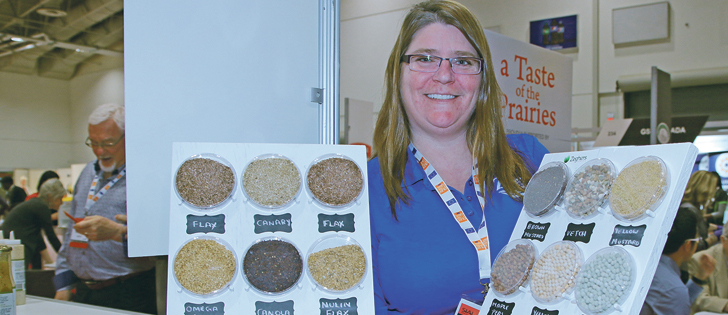‘Eat well’ attitude grows | More education needed to clarify what’s in everyday food
TORONTO — A growing number of people with food sensitivities is influencing marketplace choices, says a food and health marketing specialist.
Isabelle Marquis, a director with XTC World Innovation, said 20 percent of the Canadian population claims to be allergic.
“In reality, they may be intolerant, not allergic, but that still influences choices,” she said, noting it’s a trend that shows no sign of abating.
These consumers are looking for clear information on product labels, she told the recent SIAL food trade show in Toronto.
Read Also

Fuel rebate rule change will affect taxes and AgriStability
The federal government recently announced updates to the fuel rebates that farmers have been receiving since 2019-20.
“Declare what is there and what is absent,” she advised food processors.
Marquis also said there is a growing belief that stomach ailments are caused by gluten. Sixty-five percent of the population regularly experiences some kind of digestive pain.
“They suspect it to be one of the reasons they may be having food discomfort,” she said.
“Health professionals are trying to calm down people and explain what is gluten and what it is for and make sure we don’t cut it out if not necessary. There’s a lot of work to be done on that, the train is going and it’s going fast and it will be hard to stop it.”
Marquis said gluten-free products were initially created for the celiac market but grew in appeal.
“The effect on the general population was people didn’t know what gluten was but understood if it’s written and free of that ingredient, it means it is something I should avoid, so it started from there and went bigger and bigger.”
Surveys show people regard gluten-free as a “better for you” product.
Nicolas Trentesaux, a director with the SIAL Group in Paris, France, cited global trends toward an “eat well” attitude.
“People connect healthy food and living longer, better,” he said.
In addition, consumers are becoming more socially responsible, demanding sustainable farming practices that don’t harm the environment. He said they also want transparency, traceability and assurance about what they are eating.
They are more discerning and spend more time examining packaging and labelling, said Trentesaux.
There are also demands to verify “natural” claims on products.
Trentesaux said different countries have different requirements for such products, but the common denominator is that regulations are getting tougher.
“Now a lot of claims cannot be made anymore,” he said.















